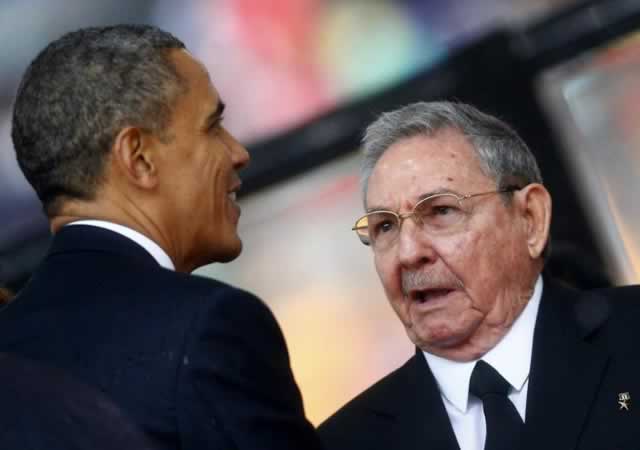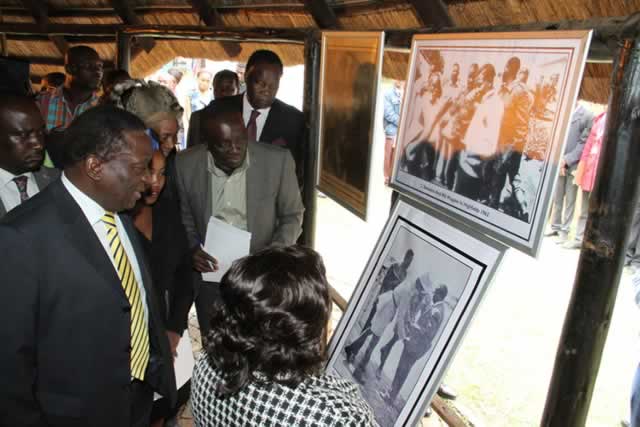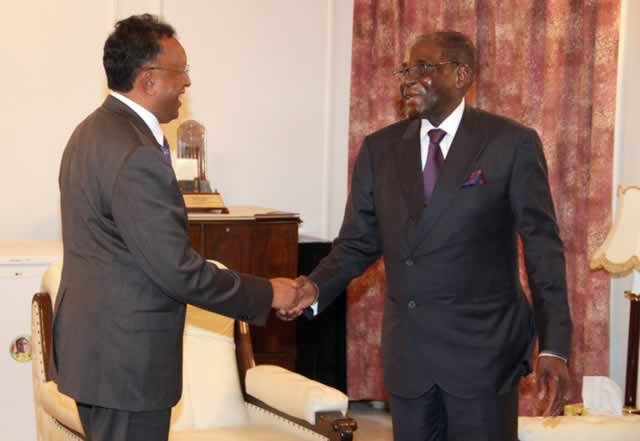Editorial Comment: Cuban pragmatism, a people’s victory

IN 1973, Cuba’s revolutionary leader, Fidel Castro, reportedly said that the normalisation of relations between the Caribbean island and the United States would take place when the latter had a black president and when there was a Latin American pope.
The prophetic word came to pass when on December 17, 2014 Presidents Barack Obama and Raul Castro announced the thawing of relations between the US and Cuba.
Pope Francis (an Argentinian) has been credited for playing a major role in the historical event. On Wednesday, we saw Cuba and the US taking a further step toward the full restoration of diplomatic ties, as the two countries agreed to reopen embassies in their respective countries as of July 20 this year.
The United States severed diplomatic ties with Cuba in January 1961 following the Cuban revolution and thereafter has interfered in its internal affairs — working tirelessly to overthrow Castro’s government — imposing an economic embargo that has been in place to date.
The sanctions against Cuba were meant to isolate Cuba and turn it into a pariah state. Although the embargo’s main target was Fidel Castro, the sanctions as is the norm with US sanctions have immensely hurt ordinary Cubans. The frosty relations between Cuba and the US in the past five decades were also characterised by Cold War protests, provocations and strains. These have been five decades of immense economic suffering for the Cuban people, but this did not kill their resolve and determination to fight for what rightly belongs to them, and to also tell a superpower like the United States that it was on the wrong side of history since 1959 and remained on that wrong side well into the 21st Century.
Thus President Obama’s remark was well placed: President Obama said in his statement: “We don’t have to be imprisoned by the past.”
The Cuban resolve also gave the US a taste of its medicine. It preaches democracy and human rights, but fails to abide by the principles of justice as it interferes in the internal affairs of sovereign states in order to foist its brand of democracy. It remained a mystery that the US was able to normalise relations with former Cold War antagonists like China, Russia, Vietnam, but could not do the same with its neighbour, Cuba.
But, the trade embargo remains, and might be there for years to come considering that it will take the US Congress to have it removed. While this latest move is commendable, we also laud the Cuban government for the cautious pragmatism in how they have approached the normalisation of relations with the US.
They are not throwing caution to the wind as they realise that the most difficult part of the deal is the removal of the trade embargo, a move that some US Congressmen and Republican presidential hopefuls are vehemently opposing.
Cuba has not shifted goalposts because its economic well-being is more important than anything else. Cuba is going in this as an equal partner, not a second class state that wants to take advantage of the rich pickings that might arise from closer ties with the US. It made this clear in a statement, where it seeks that certain fundamentals are fulfilled: “The re-establishment of diplomatic relations and the opening of embassies completes the first stage of what will be a long and complex process towards the normalisation of bilateral relations, in which it will be necessary to solve a number of issues derived from policies that were implemented in the past that are still in force and affect the Cuban nation and its people.
“There could be no normal relations between Cuba and the United States as long as the economic, commercial and financial blockade continues to be fully implemented, causing damage and scarcities to the Cuban people. The blockade is the main obstacle to the development of our economy; it is a violation of International Law and affects the interests of all countries, including those of the United States.”
President Raul Castro also called for “non-interference in the internal affairs of states; the promotion of friendly relations among nations based on respect for the principles of equal rights and self-determination of the peoples.”
Although the road ahead is bumpy Presidents Castro and Obama must be credited for having the political will to effect acceptable regime change in both countries. Although the US presidency is a straitjacket, we hope that by the time President Obama leaves office, he will have worked on some of the intricate issues that threaten the success of realising this deal to the full. That way, he will have boosted his legacy which will be underpinned by foreign policy agendas.
Cuba must also remain focused, for Fidel Castro and Raul Castro’s legacies are equally important. And, the biggest winners will be the Cuban people.








Comments